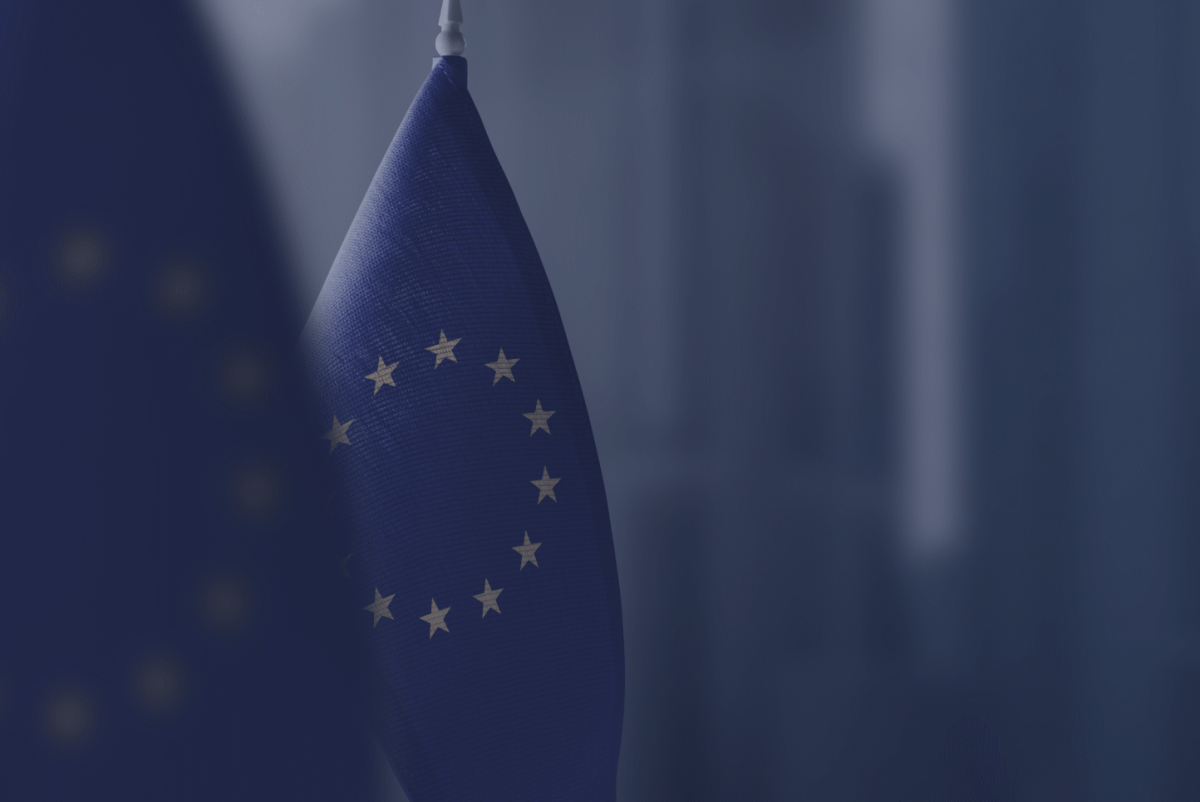Ensuring Compliance in Video Communications Across Borders
Video calls are a lifesaver for global businesses. They let you connect face-to-face with anyone, anywhere. But be careful! Data privacy laws differ from country to country. What's acceptable in one place might land you in trouble elsewhere.
This guide will help you make sure your video calls and apps stay compliant. We'll cover the complexities of cross-border video communication so you can stay on the right side of the law, no matter where your calls take you. That being said, let's dive in!
Table of contents
- What is cross-border compliance?
- Understanding compliance in video conferencing
- Major data privacy laws and their impact on video conferencing
- Cross-border compliance challenges
- Consequences of non-compliance
- Navigating the challenges of cross-border compliance in video conferencing
- Effortlessly Embed HD, GDPR-compliant video conferencing into your apps and websites with Digital Samba
- Conclusion
What is cross-border compliance?
We collaborate with people across the globe thanks to the convenience of video conferencing. However, this global reach comes with a crucial consideration: data privacy laws. Cross-border compliance means understanding and respecting the different regulations that apply based on your video call participants' locations.
It matters because every country has unique rules governing data privacy. These laws dictate how organisations must handle personal information collected during video calls. Ignoring cross-border compliance can lead to severe consequences - from hefty fines to significant damage to your company's reputation.
For example, a sales team in California video conferencing with a potential client in Germany must be aware of and follow both California's CCPA and Germany's GDPR.
Cross-border compliance isn't a hurdle; it's a way to ensure your video calls are secure, responsible, and respectful of everyone's data privacy rights, regardless of location.
Understanding compliance in video conferencing
Video conferencing is a fantastic tool for connecting with colleagues and clients, but with this convenience comes the need to understand compliance. Compliance means following the rules that ensure everyone's information stays safe and secure.
Imagine you're a doctor using video conferencing to chat with a patient. During the call, you might discuss their medical history, which is private. Here's where compliance comes in. Data protection regulations like GDPR (General Data Protection Regulation) exist to make sure this sensitive information is handled securely. This means using a video conferencing platform with robust security features and getting the patient's consent before recording the call.
Compliance isn't just about healthcare, though. Many industries have specific rules for video conferencing. Financial institutions might have regulations about how customer data is shared during video calls, while educational institutions might need to follow guidelines for recording online classes.
So, the crucial thing to keep in mind before you hop on a video call, especially for work purposes, is to be aware of any relevant regulations. This might involve checking your company's policies or researching industry-specific compliance requirements. Choosing a secure video conferencing platform and being transparent about recording practices are also essential aspects of video conferencing compliance.
By understanding and following these guidelines, you can ensure your video conferences are secure and compliant, allowing you to reap the benefits of this powerful communication tool with peace of mind.

GDPR Compliance in Video Meetings: What You Need To Know
Read the blog
Major data privacy laws and their impact on video conferencing
It would take forever to cover every video conferencing privacy law! Instead, we'll focus on the major ones that impact most users. Many countries base their regulations on these key laws. Let's take a closer look at the major ones that govern most:
1. GDPR (General Data Protection Regulation)
The EU's GDPR is a landmark data protection regulation. It empowers individuals with significant control over their data and mandates strict security measures for organisations handling that data. GDPR enforces the following:
Transparency
Consent
Security
2. CCPA (California Consumer Privacy Act)
The CCPA grants California residents specific rights regarding their personal information. Here's how it impacts video conferencing:
Right to know
Right to deletion
Opt-out of data sale
3. HIPAA (Health Insurance Portability and Accountability Act)
HIPAA is a US law designed to govern the use and disclosure of protected health information (PHI). Healthcare providers utilising video conferencing for telehealth appointments must adhere to strict HIPAA compliance, including:
Secure platforms
Business Associate Agreements (BAAs)

Unlocking Privacy Prowess: Why US Firms Should Pay Attention to GDPR
Read the blog
4. COPPA (Children's Online Privacy Protection Rule)
COPPA places restrictions on collecting data from children under 13 years of age. This is particularly relevant for educational institutions or other organisations using video conferencing with young students. Here's how it applies:
Parental consent
Limited data collection
5. PIPL (Personal Information Protection Law)
China's PIPL is a comprehensive data privacy law that took effect in November 2021. Here's how it might impact video conferencing:
Data localisation
Individual rights
Data privacy laws are constantly evolving across the globe. It's crucial for businesses and individuals conducting international video conferences to research and understand the specific regulations applicable to all participants' countries.
Cross-border compliance challenges
Video conferencing opens up a world of possibilities for global collaboration. But when working across borders, it's important to be aware of the compliance challenges that come with the territory. Here are some of the challenges:
- Data privacy laws: Every country has its own way of protecting personal data. Think of the GDPR in Europe or the CCPA in California. Your video conferencing platform must comply with the rules of every country where your participants live. This can be complex, especially when working with people across many time zones.
- Data residency requirements: Some countries insist that their citizens' data be stored within their borders. This can be problematic if your video platform stores recordings or transcripts on servers in a different country.
- Data security concerns: Video conferencing can involve sharing sensitive information, from financial figures to private client details. You need to trust that your platform has robust security, including encryption, to protect data during transmission and archival.
- Eavesdropping and interception risks: Cross-border communication raises the possibility of interception by governments or malicious individuals. Businesses need to understand the encryption and security features their platform offers, especially when discussing confidential matters.
- Lack of clarity and consistency: The regulatory landscape surrounding video conferencing is ever-evolving, with new laws and regulations emerging frequently. Keeping up-to-date with these changes across various jurisdictions can be a daunting task for businesses.
- Tax and employment regulations: If you frequently hold video conferences with employees or contractors based in other countries, you may face tax and employment law obligations in their jurisdiction. These laws can be surprisingly complex.
- Lack of global standards: Unfortunately, there's no universal rulebook for video conferencing compliance. Laws differ wildly between nations, and what's acceptable in one place might cause legal trouble in another. Keeping track of everything is a significant challenge.
These challenges highlight the importance of careful platform selection and a proactive approach to compliance. By understanding the legal and regulatory complexities involved, businesses can leverage the power of video conferencing for seamless global collaboration while mitigating potential risks.
Consequences of non-compliance
Ignoring cross-border compliance in video conferencing isn't an option. The penalties for getting it wrong can be severe, harming your business and clients.
- Hefty fines: Data protection authorities impose huge fines for compliance violations. For example, GDPR non-compliance can result in penalties of up to €20 million or 4% of a company's annual global turnover, whichever is higher!
- Damaged reputation: News of data breaches or privacy mishandling travels fast. Losing the trust of your clients, partners, or the public can have long-lasting consequences for your brand.
- Legal battles: Non-compliance can expose you to lawsuits from individuals or regulatory bodies whose data is mishandled. These legal costs and potential damages can cripple your business, especially for smaller companies.
- Operational disruption: In severe cases, authorities may force you to suspend or completely change how you use video conferencing, disrupting essential business operations and communication channels.
- Lost opportunities: Non-compliance creates friction. Clients may hesitate to work with a company that doesn't take data protection seriously, leading to lost business and stunted growth in international markets.
The consequences of non-compliance go beyond immediate financial penalties. Failing to protect user data erodes trust. Mishandling this trust can have devastating long-term effects on your business.
Investing time and effort in understanding and choosing cross-border compliance solutions may seem like a burden, but it's a wise business decision. The potential costs of non-compliance far outweigh the investment needed to get it right.
Navigating the challenges of cross-border compliance in video conferencing
Now that we understand the legal complexities, let's dive into practical steps to ensure your video conferencing setup adheres to these regulations. Here's what you can do to navigate compliance smoothly:
Be transparent about data collection
Before any video call, clearly inform participants about what data your platform collects. This could include basic user information (names, emails), meeting details (date, duration), and any content shared during the call (presentations, documents). Never collect more data than what is necessary for the call to function. Less data means less risk of running afoul of regulations.
Respect user privacy
Store recordings securely
Set clear data retention policies
Map your data journey
Understand the complete data lifecycle within your video conferencing system. Track collection of data from participants, its processing by the platform, transmission during the call, and archival of that data. This knowledge helps you align your practices with data privacy and residency regulations in different countries.
Choose a compliant video conferencing partner
Educate your team
Stay informed and stay compliant
Protect user data; it's not for sale
By following these steps, businesses can leverage the power of video conferencing to connect with international teams with confidence. Remember, transparency, responsible data handling, and staying informed are key to navigating the ever-changing landscape of cross-border compliance.
Effortlessly Embed HD, GDPR-compliant video conferencing into your apps and websites with Digital Samba
When embedding video conferencing into your digital platforms, security and privacy aren't just concerns; they're paramount. Our company, a European company, understands this deeply. We've built our solution from the ground up to prioritise data protection, making it the ideal choice for businesses needing robust compliance and peace of mind.
Here's how Digital Samba safeguards your video conferencing experience:
- GDPR-compliant: Digital Samba meticulously adheres to the EU's General Data Protection Regulation. This translates to robust rights for your users, like informed consent, data deletion, and transparency, giving you peace of mind and building trust with your customers.
- End-to-end encryption: Every conversation, shared document, and potential recording is protected by unbreakable end-to-end encryption. This ensures that only authorised participants can decipher the data, safeguarding confidential conversations in healthcare, financial, and other sensitive settings.
- Privacy features that empower your users: We put control back in your users' hands with features like token authentication, streamlined consent mechanisms for data collection, and easy account deletion. These options make your platform more privacy-focused and respectful of user preferences.
- Security is woven into our processes: From strict internal policies and ongoing staff training to advanced encryption, secure storage, and rigorous access controls, we embed security into every step of the process. This commitment makes our platform ideal for industries like telehealth, e-learning, or customer support, where confidential information is routinely exchanged.
- Choose transparency and build stronger relationships: We empower you with clear communication about our data practices. This open approach helps you make informed decisions about your integration and cultivates trust within your user base.
Ready to enhance your platform's communication capabilities while keeping user privacy at the forefront? Join Digital Samba today!

How to Integrate Video Conferencing into Your Website
Read the blog
FAQs
Cross-border compliance in video communications refers to adhering to regulations and standards that govern data privacy, security, and communication across different countries. Companies using video conferencing platforms must comply with local and international laws to protect user data and avoid legal penalties.
Cross-border data privacy compliance involves navigating complex regulations like the GDPR in the EU, CCPA in the US, and other country-specific laws. Challenges include ensuring data encryption, managing user consent, and securely storing data on servers that comply with local regulations.
Cross-border compliance software helps organisations manage regulatory requirements when using video conferencing platforms. It automates compliance checks, monitors data flow, and ensures that video communication systems align with local and international laws, reducing the risk of non-compliance.
To achieve cross-border and cross-state compliance, businesses should use video conferencing platforms that prioritise data security and compliance features. This includes selecting platforms that offer compliance certifications, data encryption, and privacy controls tailored to regional laws.
Cross-border communication platforms ensure compliance by implementing robust data protection measures such as end-to-end encryption, data anonymisation, and adhering to local data storage requirements. These platforms often include features to help organisations remain compliant with diverse international privacy laws.
Best practices include regularly updating your cross-border compliance software, conducting compliance audits, implementing strict data access controls, and using platforms that adhere to international regulations. Staying informed about changes in data privacy laws is also crucial to maintaining compliance.
Conclusion
With the rise of remote work and international collaborations, cross-border video conferencing compliance is no longer optional; it's essential. By choosing the right tools and following a few key practices, you can ensure that your video conferences stay secure and compliant with global privacy laws.
Here's where a GDPR-compliant video conferencing provider like Digital Samba stands out. We offer user-friendly, secure video conferencing solutions tailored to meet Europe's strict data privacy standards. Plus, with Digital Samba, new users get 10,000 free minutes, which is perfect for businesses that are ready to experience the next level of privacy-focused video communication. Sign up to get started!
Share this
You May Also Like
These Related Stories

GDPR Compliance in Video Meetings: What You Need To Know

Navigating HIPAA and GDPR: A Guide to Video Conferencing for Healthcare Professionals
.webp)


